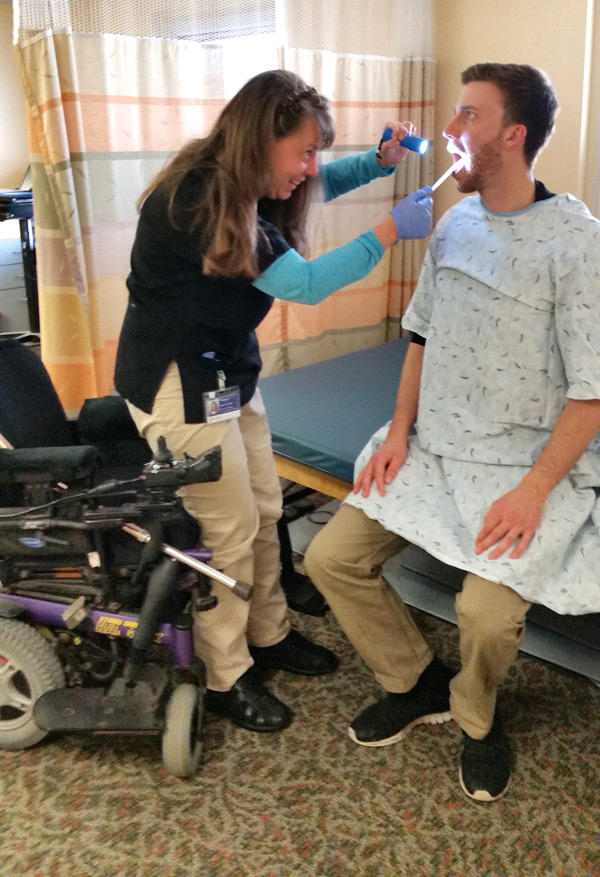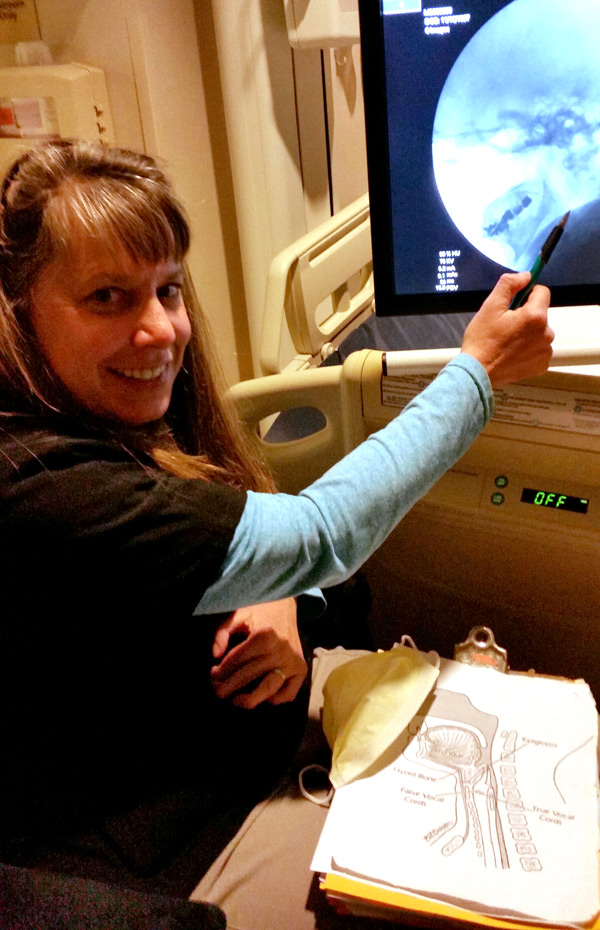Growing up, I first wanted to be an artist. I then wanted to be an orthodontist, then an elementary school teacher. I settled on physical therapist when I entered high school. Ironically, I desired to help people with disabilities.
When I was 16, a devastating motor vehicle accident thrust me into the "disabled" category. When I was in rehab after my accident, it became painfully obvious that my dream to become a physical therapist would never come true as I was not physically capable of doing what was required to be a PT.
My cousin, an occupational therapist, recognized my plight and suggested I look into a career in speech/language pathology. For a high school class, I was able to observe both a third grade teacher and a speech therapist in an elementary school. I was intrigued by the profession as it was a mixture of both medical science and language, areas in which I had a keen interest.
I searched for a university with a good speech/language pathology program and settled on the University of Northern Colorado which was two hours from home. During my first semester while enrolled in the introduction class, I realized early on I had chosen the perfect career path. It was a career in which I was physically capable, and the required classes in science intrigued me.
A bachelor's degree required classes in phonetics, anatomy & physiology, biology, and language development, just to name a few. I was well aware that becoming a speech/language pathologist required a master's degree, so I was prepared for the long haul. Part of my master's degree required two internships: one in a school setting and one in a medical setting. My first internship was in a kindergarten and first grade classroom teaching children that had moderate-to-severe articulation, voice, and language disorders. I worked alongside a mentor in my hospital internship, which included acute care, rehabilitation, and outpatient therapy. Speech/language pathologists can work with adults and children in either a school or medical setting. By the end of my hospital internship, I realized my heart was in the medical field.
It is in this setting that I have been able to truly empathize with my patients, a feat rarely accomplished by the typical therapist. I can relate to those in the midst of a dramatic life change due to a head injury or stroke because I also spent time in acute care and rehabilitation. When I say to my patients, "I understand," they know I am sincere because they see my deformed hands and my wheelchair. Additionally and unfortunately, I can also relate to families experiencing loss from cancer. I lost my mom a few years ago to an aggressive malignant brain tumor.

I have been employed as a speech/language pathologist for a total of 28 years. My first year, I worked in a classroom very similar to the one in which I had worked during my internship. The next 27 years were spent working in acute care hospitals, rehabilitation centers, and outpatient clinics. My day consists of diagnosis and treatment of speech/language, cognitive, and swallowing disorders. My expertise and interests lie in diagnosis and treatment of swallowing disorders. I typically evaluate patients at the bedside with different consistencies of food and liquid to determine the safest diet. This is important to prevent aspiration into the lungs which can cause pneumonia. Some days, my job requires me to perform a video fluoroscopic swallow study, which is a moving X-ray of a patient's swallow. I also provide education in heart-wrenching situations in which families have to make decisions about their loved one eating with risk, deciding on hospice care or taking nothing by mouth and receiving non-oral nutrition, due to the severity of the swallowing problem.

I used a manual wheelchair in my career initially, but I have used a power wheelchair for the past 20 years. I would not have been able to do all that is required in my profession had it not been for my wheelchair. To me, a power wheelchair is synonymous with freedom and independence.
My employers have been receptive to accommodating my needs. I use a rollerball mouse as well as a computer dictation system to improve my ability to document.
When choosing a career, it's important to consider your physical and mental capabilities as well as interests. Also, it is wise to look at the amount of time required and cost of training. My training took six years.
I cannot imagine myself in a more suited career. It's a job I can do physically and it stimulates my mind. It gives me great satisfaction to be able to make a real difference in others' lives. An artist? A physical therapist? A teacher? My cousin's suggestion was spot-on.
About the Author
Karen sustained an incomplete cervical spinal cord injury in a devastating, nearly fatal car accident 35 years ago at the age of 16. She has partial paralysis from the neck down, and so uses a power wheelchair and can walk short distances with canes. Prior to the accident, she learned perseverance and drive through competitive swimming and was a state record holder and High School All-American. After high school, she earned bachelor's and master's degrees in Speech-Language Pathology and currently works as a clinician in a hospital. Karen lives with her husband, two teenagers, and dog, Copper, in Littleton, Colorado. She still enjoys swimming, is active in church activities, and loves touring beautiful Colorado.
Most of the stories here on LiveQuickie were submitted by readers. Do you have a story to tell? We'd love to hear it. Submit your story here.